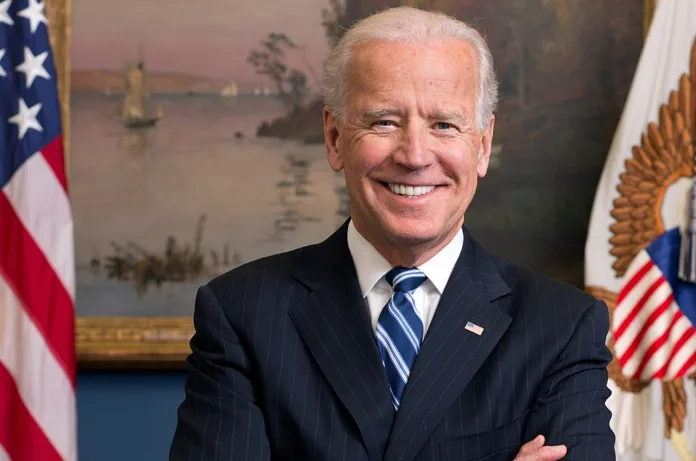Democratic lawmakers and governors express concerns over Biden’s candidacy following poor debate performance and polling decline
Joe Biden is under renewed pressure to reconsider his re-election bid after a Democratic lawmaker and several party governors raised concerns about his viability as a candidate. Congressman Lloyd Doggett of Texas became the first from Biden’s party to publicly call for his withdrawal, stating, “Too much is at stake to risk a Trump victory in November’s election.” Doggett emphasized Biden’s dedication to the country, expressing hope that Biden would make the difficult decision to step aside for the greater good.
Following Doggett’s remarks, Congressman Jared Golden of Maine published an op-ed in the Bangor Daily News expressing his lack of confidence in Biden’s chances against Trump. “While I don’t plan to vote for him, Donald Trump is going to win,” Golden stated bluntly. Additionally, Congresswoman Marie Gluesenkamp Perez of Washington criticized Biden’s debate performance, stating, “We all saw what we saw, you can’t undo that, and the truth is that Biden is going to lose to Trump.”
These comments came as Democratic governors arranged a meeting with Biden to discuss his candidacy. According to sources, the governors intended to address concerns about Biden’s age and fitness for office, which were exacerbated by his recent debate performance. An influential New York donor remarked, “Momentum is building to oust Biden. The recent Supreme Court decision granting Trump immunity has heightened fears about a potential Trump victory.”
Embed from Getty ImagesWhite House Chief of Staff Jeff Zients planned an all-staff call to address the situation. Biden himself acknowledged the party’s anxiety over his debate performance, admitting to a fundraiser audience that he was “not very smart” for travelling extensively before the event with Trump. “I didn’t listen to my staff, and then I almost fell asleep on stage,” Biden confessed.
Despite Biden’s intensive preparation at Camp David the week before the debate, his approval ratings have plummeted to an all-time low of 36% among Americans, according to a CNN poll. The same survey indicated that Vice President Kamala Harris would perform better than Biden in a hypothetical match-up against Trump.
Wednesday’s meeting with the governors included notable figures such as California Governor Gavin Newsom, Michigan Governor Gretchen Whitmer, and Illinois Governor JB Pritzker. White House Press Secretary Karine Jean-Pierre stated that Biden would meet with congressional leadership and hold a rare press conference at the upcoming NATO summit, amidst growing calls for more public appearances to demonstrate his capabilities.
Although Doggett is the only lawmaker to openly call for Biden’s exit, his statement mirrors private sentiments within the party. Former House Speaker Nancy Pelosi acknowledged the legitimacy of questioning Biden’s condition, while Congressman Jim Clyburn, a staunch Biden supporter, hinted at supporting Harris if Biden stepped aside. Senator Sheldon Whitehouse of Rhode Island also expressed concerns, urging the president’s team to be transparent about Biden’s condition.
Jean-Pierre acknowledged the president’s poor debate performance but defended his overall record, stating, “He knows how to do the job; his record proves it.” However, the CNN poll revealed that three-quarters of voters, including over half of Democrats and independents leaning Democratic, believed the party would have a better chance with a different candidate. The poll showed Trump leading Biden by six points, with Biden’s approval rating at its lowest.
Analysis
Political: The public calls from Democratic lawmakers for Biden to step aside reflect deepening concerns about his electability. The involvement of governors in discussing his candidacy indicates a substantial rift within the party. If Biden were to withdraw, it could pave the way for a contested primary, potentially altering the political landscape. The push for a new candidate underscores the party’s strategic calculations in ensuring a victory over Trump, suggesting a shift in leadership could realign Democratic priorities and strategies.
Social: Biden’s declining approval and the open dissent from party members highlight a broader issue of public trust in leadership. The debate performance and subsequent criticism have amplified existing concerns about his age and vitality. This situation underscores the public’s desire for a dynamic and capable leader. The social discourse around Biden’s candidacy is likely to influence voter engagement and mobilization, particularly among younger demographics seeking more energetic representation. The situation also highlights the impact of media narratives and public perception in shaping political careers and electoral outcomes.
Racial: Biden’s leadership has been pivotal in addressing racial issues, but his potential exit raises questions about future advocacy. The speculation around Kamala Harris stepping in as a candidate brings racial representation to the forefront. Harris, as a woman of colour, symbolizes progress for many minority communities. Her potential candidacy could invigorate these voter bases and reinforce the party’s commitment to diversity and inclusion. However, the transition process must be handled sensitively to avoid alienating key constituencies that have been instrumental in supporting the Biden administration.
Gender: Biden’s potential withdrawal and Harris’s possible candidacy highlight gender dynamics in political leadership. Harris’s ascent would mark a historic milestone, positioning a woman of colour as the frontrunner for the presidency. This development could inspire increased political engagement among women and marginalized groups. However, the scrutiny faced by female leaders often differs from their male counterparts, necessitating a nuanced approach to addressing gender biases and ensuring equitable treatment in the political arena. The evolving narrative around Biden and Harris underscores the interplay of gender and leadership in contemporary politics.
Economical: The instability surrounding Biden’s candidacy could impact market perceptions and investor confidence. Political uncertainty often translates to economic volatility, with businesses and markets reacting to potential shifts in policy and leadership. Biden’s administration has overseen significant economic policies, and his withdrawal could prompt concerns about continuity and future economic strategies. The Democratic Party’s approach to selecting a new candidate will be crucial in maintaining economic stability and investor confidence. Moreover, the economic discourse within the party will likely focus on addressing inequalities and fostering growth, aligning with the broader goals of sustainable development and fiscal responsibility.
